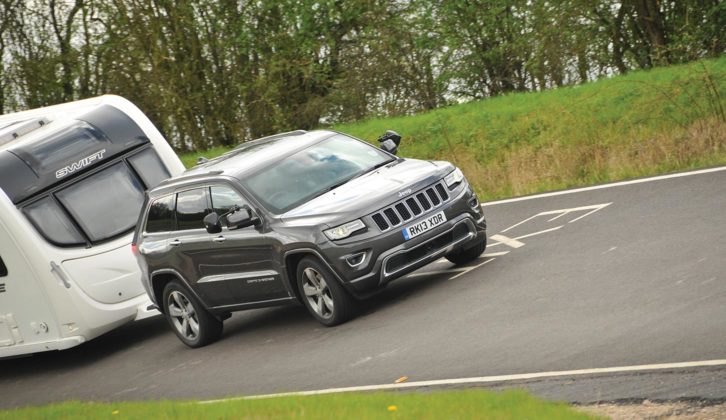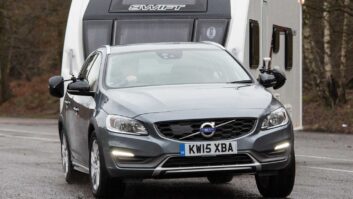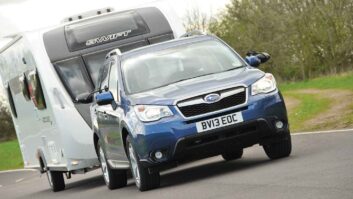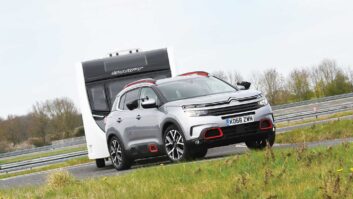No question about it, the Jeep Grand Cherokee is the Clint Eastwood of the tow car world.
It’s a lantern-jawed, mean-looking, strong hero that looks as though it will brush off pretty much anything your towing life can throw at it, with merely a snarl of contempt.
But do those mean-and-moody looks actually translate into real-world usability as a tow car? Well, we think it would be fair to say that some bits are good, some are bad, and some are downright ugly.
You can also check out our best used car to tow a caravan guide for more inspiration.
What’s it like inside?
This generation of Jeep Grand Cherokee went on sale in 2011, but was upgraded with a hefty facelift in 2013.
For a start, the quality (traditionally a Jeep weak spot) was greatly improved, so the cabin was fitted with much better materials. The central touchscreen was tweaked, so that it responds reasonably briskly to your touch.
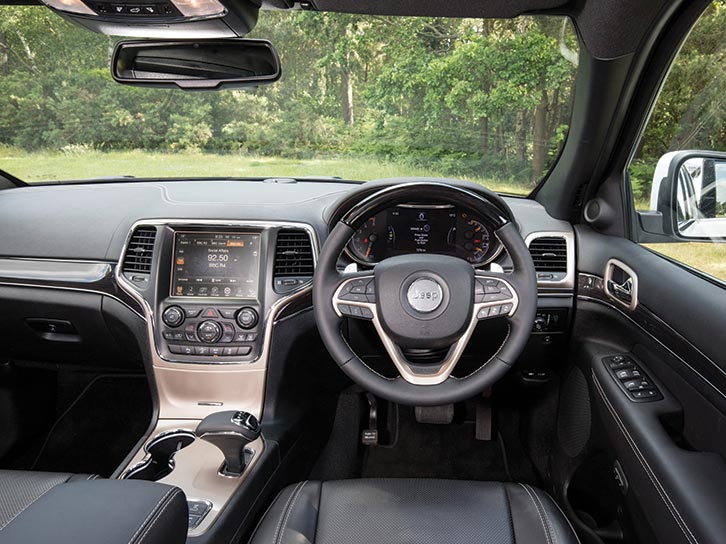
Jeep didn’t skimp on standard kit, either, with even the entry-level models having a self-dimming rear-view mirror, electric lumbar adjustment on the front seats, dual-zone climate control, cruise control and automatic wipers.
However, it’s better to seek out a model with at least Limited trim, because this adds electrically adjustable front seats, heated front and rear seats, a powered tailgate and a reversing camera.
The interior does have its bad points, in the form of a general lack of space in the rear seats. Those up front get a fair amount of room, but passengers in the back will feel decidedly hard done by.
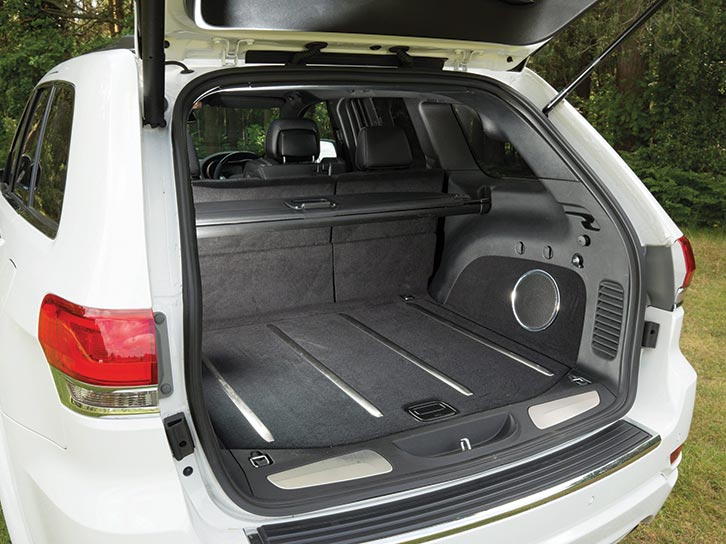
The boot also seems quite shallow, with not much room between the boot floor and the luggage cover.
How does it drive?
For tow car drivers, there is one engine choice – the 3.0-litre V6 diesel. Yes, the Jeep was available with a high-performance petrol V8 offering a biblical soundtrack and the ability to annoy Porsches, but you know: cost-of-living crisis and all that.
The 3.0 diesel comes with 188bhp or 247bhp. The 2328kg Grand Cherokee tows fairly confidently in a straight line, but when it was tested for the Tow Car Awards in 2014, we found the tail rather wagged the dog during higher-speed emergency lane changes. The foot-operated parking brake made hill starts awkward, too.
Numb steering and its size make the Grand Cherokee feel a bit intimidating on twisty roads, so the best bet is to stick to motorways. It’s even better if you can find a high-spec Overland or Summit model, because these have air suspension.
The Jeep is quite at home when things turn slippery, because the four-wheel-drive system helps it out of low-grip scenarios.
Verdict
The Jeep Grand Cherokee offers the ability to tow a heavy trailer and has plenty of standard equipment. But it also has the odd combination of feeling awkwardly large to manoeuvre, while you’re sitting in a cabin that is decidedly cramped.
If you’re after a newer vehicle instead, be sure to check out our guide to the best cars for towing a caravan too.
What will it tow?
- Kerbweight: 2328kg
- Towing limit: 3500kg
- Noseweight limit: 140kg
- 85% match: 1979kg
Running costs
- 3.0 CRD Overland
- Insurance group: 40
- Annual VED: £165
- Average economy: 35.8mpg
- Interim/full service: £93/£129
- Servicing prices supplied by Servicing Stop, 0844 324 5262
What to pay
- High: Price £42,000; Model 2020 3.0 V6 MultiJet Overland; Miles 14,000
- Sweet spot: Price £22,000; Model 2016 3.0 CRD Overland; Miles 47,000
- Low: Price £16,000; Model 2015 3.0 CRD Overland; Miles 100,000
Trouble spots
It’s fair to say that owners of the Jeep Grand Cherokee are likely to be on first-name terms with their local dealer, because the car has visited them regularly for recalls.
These include a risk of fire from faulty wiring for the passenger vanity mirror, and a brake servo that can corrode, requiring you to press the brake harder. The electrics and electronics are responsible for the majority of other recalls. A full list of recalls can be found at check-vehicle-recalls.service.gov.uk.
Or you could try…
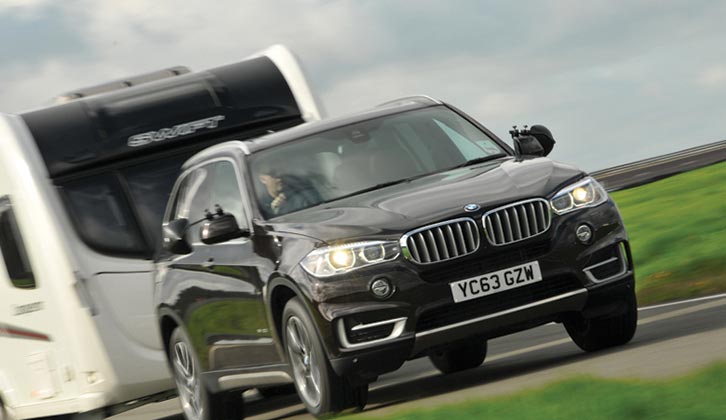
BMW X5 Mk3
The third-generation BMW X5 makes a very good alternative to the Jeep Grand Cherokee. It has loads of space in the plush cabin, and is a strong and stable towing machine. Engine choices start with a 215bhp 2.0-litre diesel, which still has enough muscle for towing duties, but the 3.0-litre straight-six diesel is stronger still. The X5 is enjoyable driven solo, but the Jeep is more capable on slippery stuff.
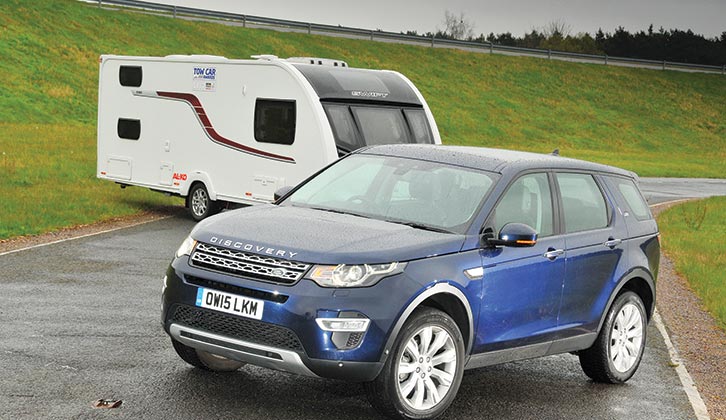
Land Rover Discovery 4
The previous-generation Land Rover Discovery is a great towing option, its 3.0-litre V6 diesel delivering ample pulling power for the heaviest trailer.
Yes, this iteration looks as aerodynamic as a three-bed semi, but that translates into huge cabin space. It also seats seven. However, Land Rovers are known for suffering more than the occasional problem, so make sure that you inspect it thoroughly before buying.
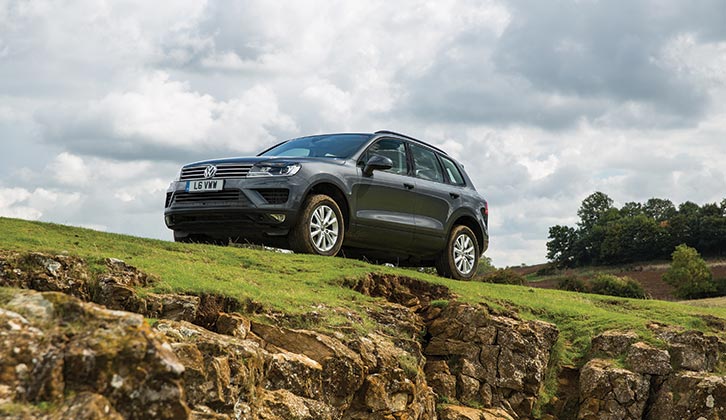
Volkswagen Touareg Mk2
The second-generation VW Touareg shares underpinnings with the Porsche Cayenne, but is in no way sporty. This comfortable all-rounder also excels when pulling a trailer. It’s a five-seater, but provides plenty of space for everyone, and the boot can take loads of their luggage. The 3.0-litre V6 diesel makes light work of towing and also likes to keep itself to itself, which makes longer journeys very easy.
If you liked this, why not take a look at these:
- If you have a smaller caravan, a used Dacia Duster could be the vehicle for you
- We explain why the Mazda 6 Tourer is a great pre-owned option to consider
If you’ve enjoyed reading this article, why not get the latest news, reviews and features delivered direct to your door or inbox every month. Take advantage of our brilliant Practical Caravan magazine SUBSCRIBERS’ OFFER and SIGN UP TO OUR NEWSLETTER for regular weekly updates on all things caravan related.
